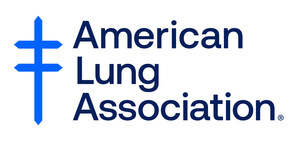CHICAGO, June 18, 2020 /PRNewswire/ -- As states lift some restrictions designed to protect public health against furthering the spread of COVID-19, people across the country are wondering how to safely engage in activities this summer such as gathering with friends, traveling and going to the beach. Individual actions can help protect public health, including those most vulnerable, and Albert Rizzo, M.D., Chief Medical Officer of the American Lung Association, offers guidance to stay safe in common summertime scenarios.
Following Centers for Disease Control (CDC) and Prevention guidance and staying up-to-date on current local public health guidance from state departments of public health are critical. If you are part of a vulnerable group, such as older adults or if you're living with a lung disease including chronic obstructive pulmonary disease (COPD), asthma or lung cancer, you should continue to exercise higher levels of caution, even if local laws have become more relaxed.
"Regardless of your location, it is important to continue social distancing, wash your hands frequently and thoroughly, avoid touching your face and wear a mask that covers the mouth and nose," Rizzo said. "This is how you can protect both yourself and those most vulnerable in our communities and families."
Travel
This summer, if you're eager to get outside of the house, the American Lung Association recommends exploring a new, local neighborhood rather than venturing far from your home.
While some countries are reopening their borders, the U.S. State Department still advises citizens to avoid all international travel due to COVID-19 with a Level 4 Global Health Advisory, the highest alert that can be issued. As for travel within the United States, while several states have significantly eased coronavirus restrictions, it is best to remain vigilant.
"Everyone can still enjoy the summer months with thoughtful planning around vacations and travel," Rizzo said. "Consider social distancing when planning travel, such as driving rather than flying if the reason for travel is not urgent. If you choose to stay at a hotel this summer, avoid congregating in communal spaces and keep activities outdoors."
It is important to consult state and local laws before moving forward with any type of gathering, as guidance continues to change rapidly.
If you are in a high-risk group, consider creating your own staycation. For example, have a socially distanced, travel-themed party in your backyard with a few close contacts.
Outdoor Gatherings
Outdoor areas are generally safer than indoor ones. This does not mean that transmission is completely stopped outside; however, there is better ventilation, more direct sunlight, and more room for people to space out, which can help reduce transmission.
"Maintaining strong social ties is beneficial for mental health, so gathering safely is encouraged," Rizzo said. "It's better to go for a socially distanced outdoor walk or picnic than to gather indoors. Children can go on a bike ride together or play cornhole rather than playing contact games or sports."
While local officials continue to issue guidance around the size of outdoor gatherings, the Lung Association recommends keeping gatherings to 10 people or less, while remaining six feet apart.
Beaches and Public Pools
In addition to sunscreen and a towel, make sure to remember your face mask if you're headed to the beach or a public pool. According to the CDC, there is no evidence that the virus that causes COVID-19 can be spread to people through the water in pools, hot tubs, or water playgrounds. While a mask is not recommended in the water, it is advised to wear one when sunbathing, using a public restroom or walking along the shore at a popular beach.
"Before you go to a beach or pool, the Lung Association recommends calling ahead and choosing a location where capacity is limited and social distancing is being observed," Rizzo said. "Continue to monitor the situation and be prepared to leave if social distancing is not respected."
Enjoy summer safely
Exercising, spending time in nature and interacting with friends and family are important for overall health. If summertime activities are done with caution, it is possible to minimize the risk of COVID-19 transmission. Rizzo suggests that if you have any questions about specific activities you'd like to do, talk to your doctor to come up with a plan.
For more information on COVID-19, visit Lung.org/covid-19. Journalists seeking to schedule an interview with a lung health expert may contact Stephanie Goldina at [email protected] or 312-801-7629.
About the American Lung Association
The American Lung Association is the leading organization working to save lives by improving lung health and preventing lung disease through education, advocacy and research. The work of the American Lung Association is focused on four strategic imperatives: to defeat lung cancer; to champion clean air for all; to improve the quality of life for those with lung disease and their families; and to create a tobacco-free future. For more information about the American Lung Association, a holder of the coveted 4-star rating from Charity Navigator and a Gold-Level GuideStar Member, or to support the work it does, call 1-800-LUNGUSA (1-800-586-4872) or visit: Lung.org.
American Lung Association • 55 W. Wacker Drive, Suite 1150 • Chicago, IL 60601
1331 Pennsylvania Ave. NW, Ste. 1425 North • Washington, D.C. 20004
1-800-LUNGUSA (1-800-586-4872) Lung.org
CONTACT: Stephanie Goldina | American Lung Association
P: 312-801-7629 E: [email protected]
SOURCE American Lung Association

Related Links
WANT YOUR COMPANY'S NEWS FEATURED ON PRNEWSWIRE.COM?
Newsrooms &
Influencers
Digital Media
Outlets
Journalists
Opted In




Share this article